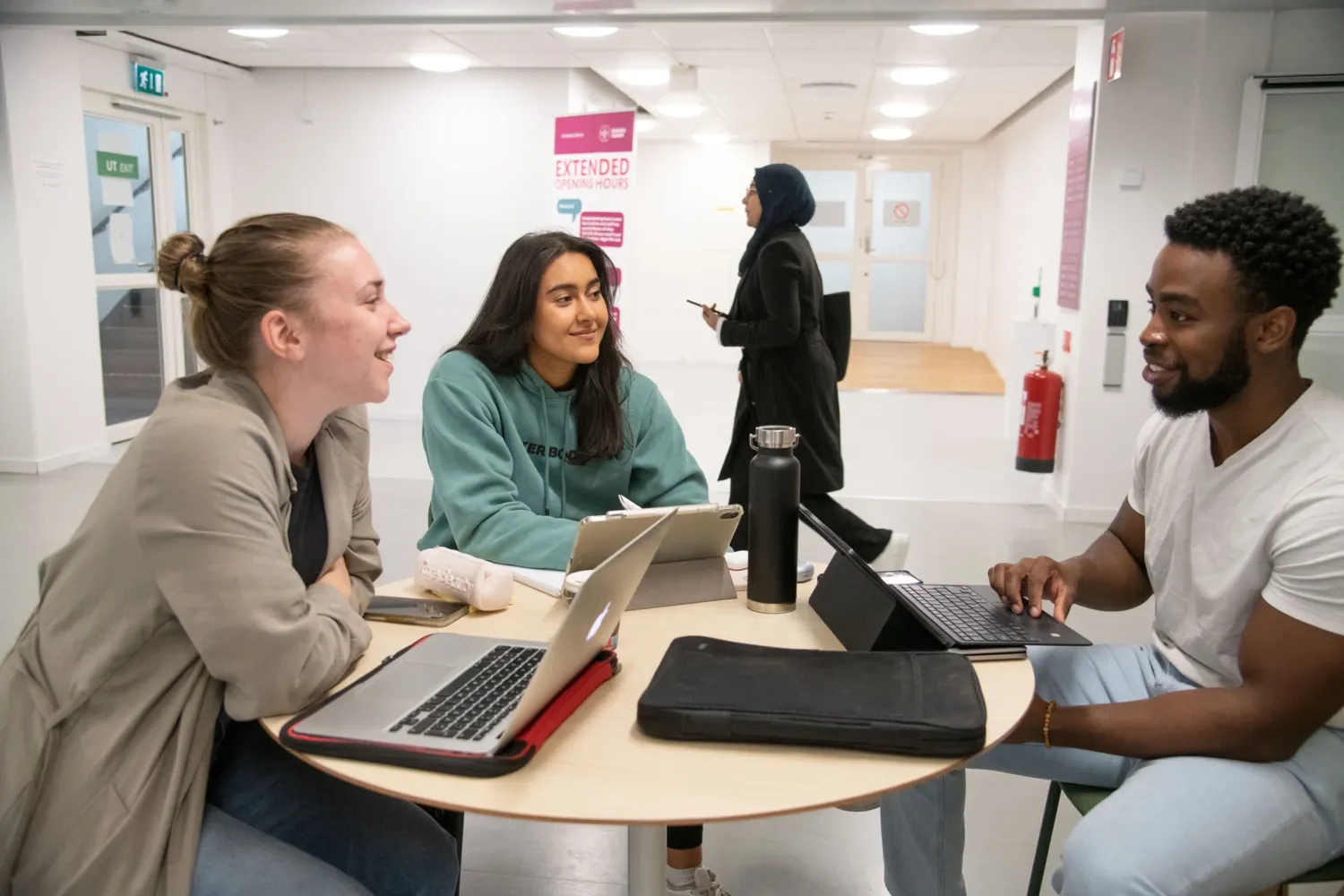How to use AI in your studies – and make sure you’re not cheating

AI can be an excellent tool to use in your studies, but you need to stay alert as to how it’s affecting your learning – and to where it crosses over into plagiarism or other forms of cheating. The KI University Library (KIB) has lots of tips on the effective and responsible use of AI and real examples of what is not acceptable.
Writing instructor Anna Borgström and librarian Lovisa Liljegren and their KIB colleagues have a good handle on AI and recently launched their AI for Students web resource, full of tips and examples of how you can make use of AI in your studies and make sure you stick to what’s permitted.
What's most important to consider when I start using AI in my studies?

“You have to think about how your use of AI tools affects your leaning,” says Borgström. “Are you learning as much – or even more – as you would have if you weren’t using IT tools? Because that’s what you want to do.”
AI tools are there to help you improve a text, so you have to make sure that they do so.
“Sometimes, an AI-generated text can look good, but it can lack depth and nuance. It can also give you the wrong answers.”
Lovisa Liljegren adds:
“You also need to know what tool you’re using and what you can use it for. If, for instance, you want to use an AI to search for scientific articles, it’s best to use a tool that’s specifically designed to do just that, rather than a general AI like ChatGPT.”
How can AI help me to learn more, and more effectively?

“Some students use AI to generate flashcards or quizzes to revise things they have to learn by heart for, say, a sit-down exam, which is a good way to complement course books,” says Lovisa Liljegren before adding a caveat:
“But it’s essential that you check the information to make sure it’s correct. AI is known for hallucinating.”
Many students use AI to improve their texts. Anna Borgström has made a checklist of four things that distinguish students who make extra-smart use of AI in this context:
- Give the AI clear prompts.
- Ask for suggestions – not rewrites.
- Ask for explanations for all suggestions so that you can understand them better.
- Thank carefully about each suggestion and make only those changes that make a genuine improvement to your text.
How do I know if the AI-generated information is reliable?
“You must always establish the veracity of the information you’ve been given by an AI by going to trustworthy sources,” says Liljegren. “When we talk about AI, we often mean a large language model that hasn’t been developed to provide facts or truths, but that’s been designed to generate language based on probability.”
Texts generated by language models is sometimes true to reality, but not always.
“So you must always check the information against credible sources, such as scientific papers, official websites or other such material that you deem reliable and suitable for your purpose.”
How can I use AI in a way that doesn't count as cheating?
“Find out the rules for AI use for the course you’re studying,” says Liljegren. “You can do this by checking out the course websites or Canvas, or you can ask your lecturer.”
“KIB’s new web resource, “AI for Students”, covers a great deal,” adds Borgström. “It gives you real examples of proper ways of using AI in your studies, and of what isn’t OK.”
There are three things she advises you to check before handing in an assignment or doing an exam:
- That what you’ve done is permitted.
- That you can account and answer for everything you’ve written.
- That you’ve learned enough while using the AI.
Since large language models have no concept of truth but are only trained to generate language, they can produce references that look genuine but that are in fact totally fabricated.
“The sources you refer to in your papers must be carefully selected and reviewed by you,” says Liljegren.
If you’re a new student at KI or feel a little unsure about using AI in your studies, there’s lots of help and support to be had from KIB.
“We also offer guidance on writing and information searches, which could involve some AI use,” says Borgström. “You can always contact us if you want to someone to discuss your AI use with.”
Much more about AI for students
Discover AI for students on the KI web
The AI for Students web resource has just been launched. KIB has sought the help of around a hundred students to ensure its practicality. It has information about how AI works and lots of tips on how it can be used in your studies; for example for writing, searching sources or producing flashcards and quizzes.
Open presentations and workshops
Keep a look out for open presentations and workshops at which the KIB staff will be talking specifically about AI in relation to the library’s specialist fields of information and writing. KIB Calendar - presentations and workshops
